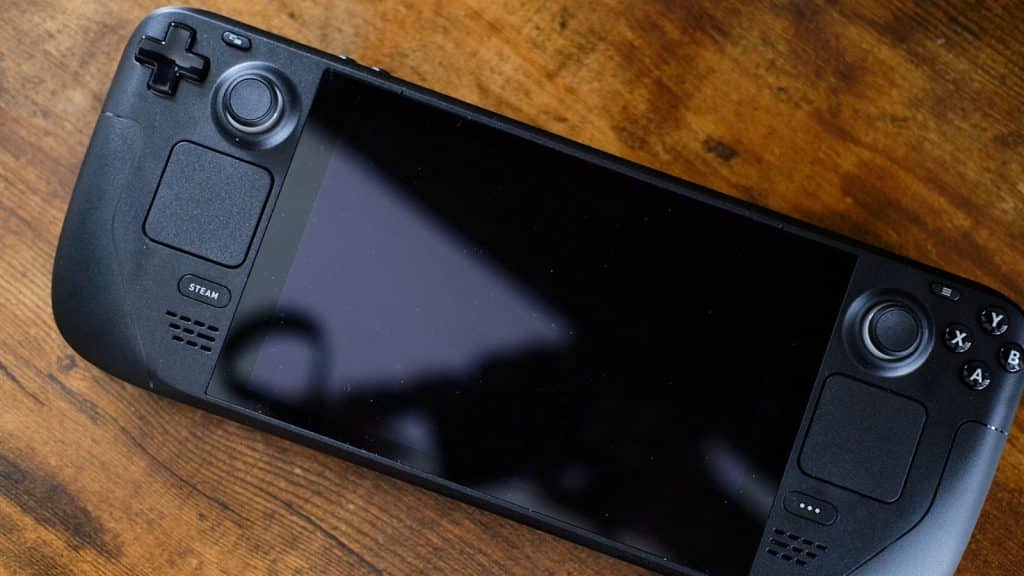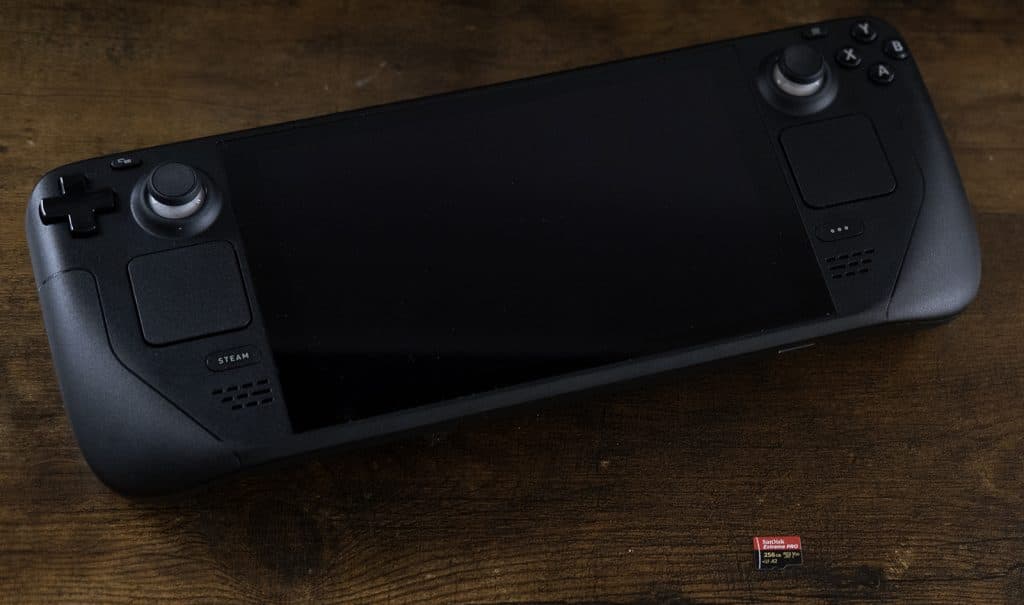Best microSD card for Steam Deck in 2024

A microSD card is a wise choice for upgrading the storage on your Steam Deck, without having to spend a lot of money. Here are our favorite options to grab.
The Steam Deck is almost two years old, and we’ve had enough time with it to work out what’s best for you. While we’ve moved on to upgrading the internal storage, a microSD card is still an excellent and budget-friendly method to store more games on your Steam Deck, or Steam Deck OLED.
This isn’t to say the microSD card is bad in any capacity. With emulation, and other things easily stored on them, as well as your vast library, it’s always worth grabbing one that takes your fancy.
In fact, testing the microSD card situation on the Steam Deck, revealed something that completely baffled us. Valve’s hardware somehow managed to turn a fairly slow storage solution, into a completely viable thing.
Seriously, we noticed no discernable loss in performance of loading times during our testing, and as we’ve continued to inundate the card in our machine with more and more games, there are no signs of it slowing down. From Horizon: Zero Dawn, CS: GO and so many more, the Steam Deck can play a vast majority of modern games off of your microSD card without much hassle.
With all that out of the way, let’s dig into the best microSD cards for the Steam Deck in 2024.
What are A2 and A1 on an SD Card?
To boil it down, the A-ratings on SD cards are how fast it can access and provide data. Randomly writing and reading data is vital to most applications, with this being the only real bearing on how fast your install times will be.
If you have fast internet, but a slow SD card with an A1 rating, you’ll find that your games will take longer to install. On A2, because it can shift the incoming data around much quicker, you’ll find it installs nearly on par with the sheer amount of data coming in from the download.
| Spec | A1 | A2 |
|---|---|---|
| Minimum random read | 1500 IOPS | 4000 IOPS |
| Minimum random write | 500 IOPS | 2000 IOPS |
| Minimum sustained write | 10MB/s | 10MB/s |
What are V30, V60, and V90 on an SD Card?
 Dexerto
DexertoV30, V60, V90, and so on, all indicate the absolute minimum read and write speed you’ll be able to achieve. So V30 will never drop below 30MB/s in theory. However, it appears that some cards – like the Samsung EVO Plus – handle their cache poorly.
It effectively gets full, needs to drop what it knows, and then carries on. During this process, Steam users have reported that download speeds tend to drop massively.
However, sometimes the way that Steam downloads and installs apps, where it’ll do it in parts to avoid draining too many resources, can give the indication that you’re on a slow SD card.
UHS-I limitations on Steam Deck
As the Steam Deck uses a UHS-I rated port, as UHS-II microSD cards haven’t happened as of yet, it never benefits from any additional claims of speed.
If we want to get incredibly detailed with it, the Steam Deck doesn’t have SanDisk’s proprietary add-ons. With some microSD card slots, SanDisk has managed to squeeze out additional performance from the aging standard. This requires a change in voltage, which Valve hasn’t actually gone ahead and included.
That’s fine, it just means that if you’re looking for a budget option, that’s completely viable.
In tests run by other outlets and YouTubers, the Steam Deck’s microSD port never reads more than 90MB/s, meaning that budget options only come with some caveats when we get to installing.
TRIM your SD cards
A Valve staff member actually gave a solution to these issues, which will require you to head into Desktop Mode and run a command in Konsole, the terminal app for SteamOS.
Using the following commands should see you get a boost in performance, as the TRIM command will tell the Steam Deck to ditch whatever data is lingering on the SD card that’s no longer needed. Think of it as a nice refresh for the SD card.
sudo fstrim -v /run/media/mmcblk0p1
Once completed, you should see something like this:
/run/media/mmcblk0p1: 16.9 GiB (18127134720 bytes) trimmed
We also recommend that you stay vigilant with our recommendations, as we’ve done our best to weed out the ones that might be fake from Amazon, but every retailer has the potential to be stocked with fake SD cards.
Best SD cards for the Steam Deck
 Dexerto
DexertoSo, because there’s no real way to surpass the confines of the original speeds laid out by SanDisk with the Steam Deck, we actually just recommend that you stay vigilant for fakes and find the best ones for your budget.
The great thing about the Steam Deck is how it manages microSD cards. You can easily pop it out, pop another in and use them like cartridges on the Switch or from a Gameboy.
Below are our top recommended microSD cards for all budgets, including premium 1TB and some low-end, A2 rated cards.
Steam Deck guides
We’re covering the Steam Deck pretty in-depth at the moment. If you’re interested in finding out how to use external storage in SteamOS, we’ve got you covered.
If you click on a product link on this page we may earn a small affiliate commission.